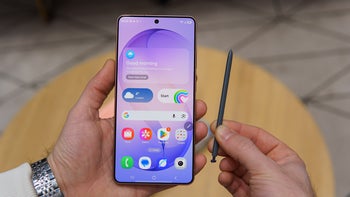The liquid metal Turing Phone ditches Android for the Sailfish OS; will release in April

The Turing Phone, which boasts a grandiose liquidmorphium frame and promises to be one of the most secure handsets around, has naturally been the subject of some fanfare. The grand roll-out, however, has been hindered by constant delays. Where its maker promised a release no later than Q1 2016 after relaxing the initial December 2015 deadline, the thing has been pushed back yet again to sometime in April. As an interesting subplot to the extended wait, though, creator Turing Robotic Industries has announced its intention to ditch Google's Android in favor of the Linux-based Sailfish OS.
Despite a relatively underwhelming repertoire consisting of Qualcomm's aging Snapdragon 801 processor, the Turing Phone includes a number of quirks, and the Sailfish software adds another dose of uniqueness to proceedings. Sailfish, for those unaware, is the brainchild of several former Nokia employees. Development has been stop-start for quite a few years now, and compared with established platforms, it's relatively bare bones. Despite several rounds of crowdfunding and plenty of promise from developer Jolla, it has yet to hit the heights and claim the spot of third mobile OS, as Jolla's CEO once suggested.
We found it to be a rather restricted piece of software in our brief interactions with it, but then it's only going to improve if companies like Turing Robotic Industries take a chance on it. The Turing Phone, if it wasn't already, is shaping up as an incredibly niche device, and after so many delays and now a lack of Android, it's reasonable to assume that it may never reach the marketplace.
Heck, even if it does see the light of day, interest may have dwindled given that pre-orders in July promised a handset shipping with Android in late 2015. In a recent email sent to those on its mailing list, TRI suggests that the Sailfish OS runs "exceptionally fast" on its enigmatic handset. All well and good, but like most fringe mobile platforms, it suffers from a distinct lack of apps. Plus, the software isn't anything like a seamless experience à la iOS, Android and Windows Mobile; all of which touts an experience likely to be riddled with bugs and general hassle.
TRI states in an email to fans that the phone "will still be able to run Android Apps on the Sailfish OS without issue," which is somewhat encouraging. Then, in our own review of the Jolla Smartphone running Sailfish, we found the Android support to be very unreliable.
Two years and one tablet later, fans will be hoping that the long-awaited Turing Phone can live up to TRI's billing.
source: Android Police
Follow us on Google News














Things that are NOT allowed:
To help keep our community safe and free from spam, we apply temporary limits to newly created accounts: